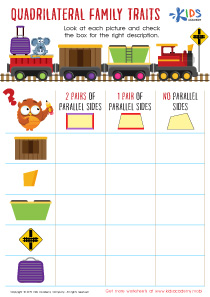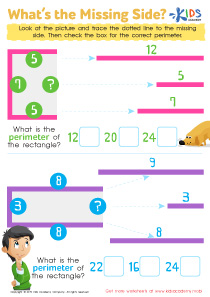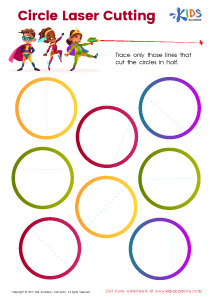Shape Recognition Normal Tracing Shapes Worksheets for Ages 3-7
6 filtered results
-
From - To
Discover our engaging Shape Recognition Normal Tracing Shapes Worksheets, designed specifically for children ages 3-7. These interactive worksheets foster early math skills by helping young learners recognize and trace various shapes, including circles, squares, triangles, and more. As children practice tracing, they enhance their fine motor skills and hand-eye coordination while developing a solid foundation in geometric understanding. Our colorful and fun worksheets make learning enjoyable, motivating kids to explore shapes creatively. Ideal for homeschooling or classroom settings, these resources support early education teachers and parents in nurturing a love for math. Start your child's shape recognition journey today!
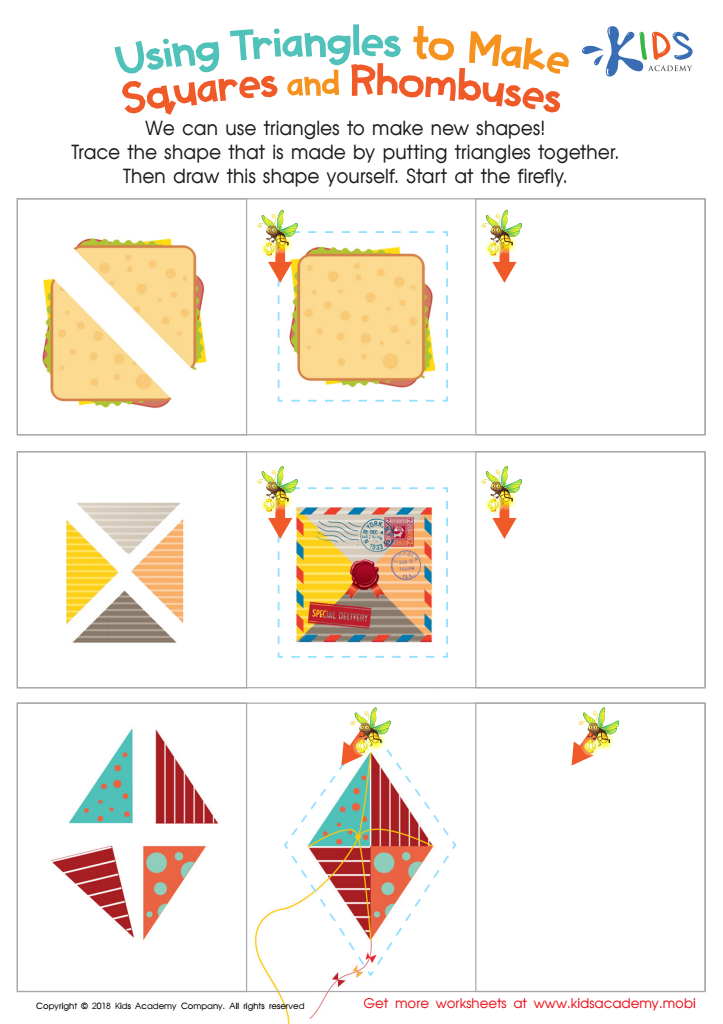

Using Triangles to Make Squares and Rhombuses Worksheet
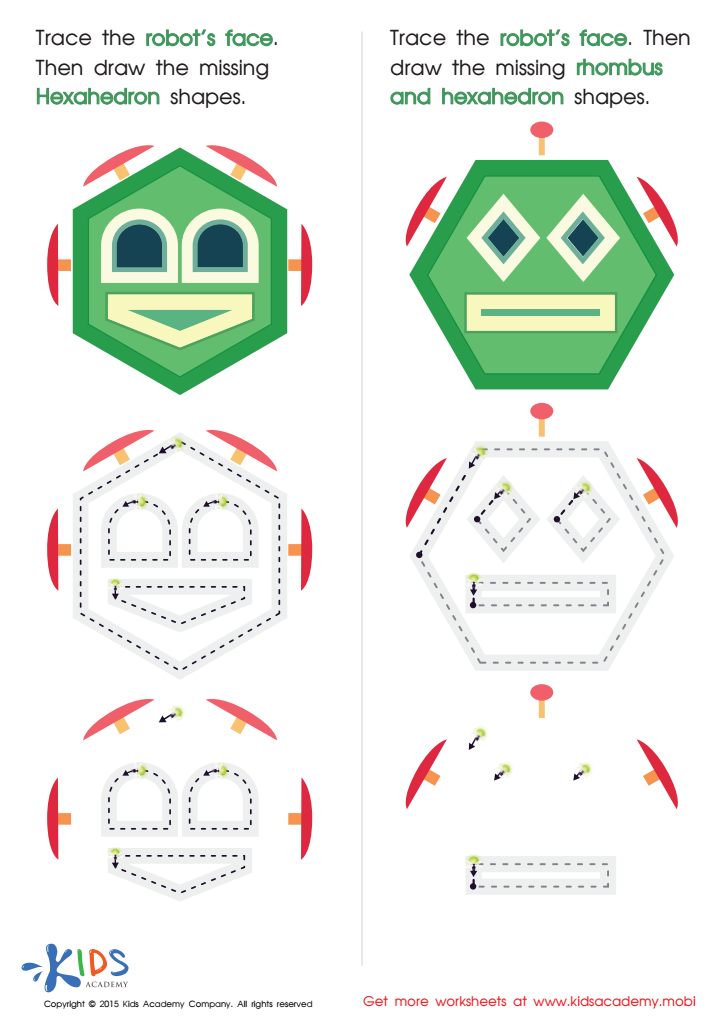

Practice Drawing Hexahedrons And a Rhombus Worksheet
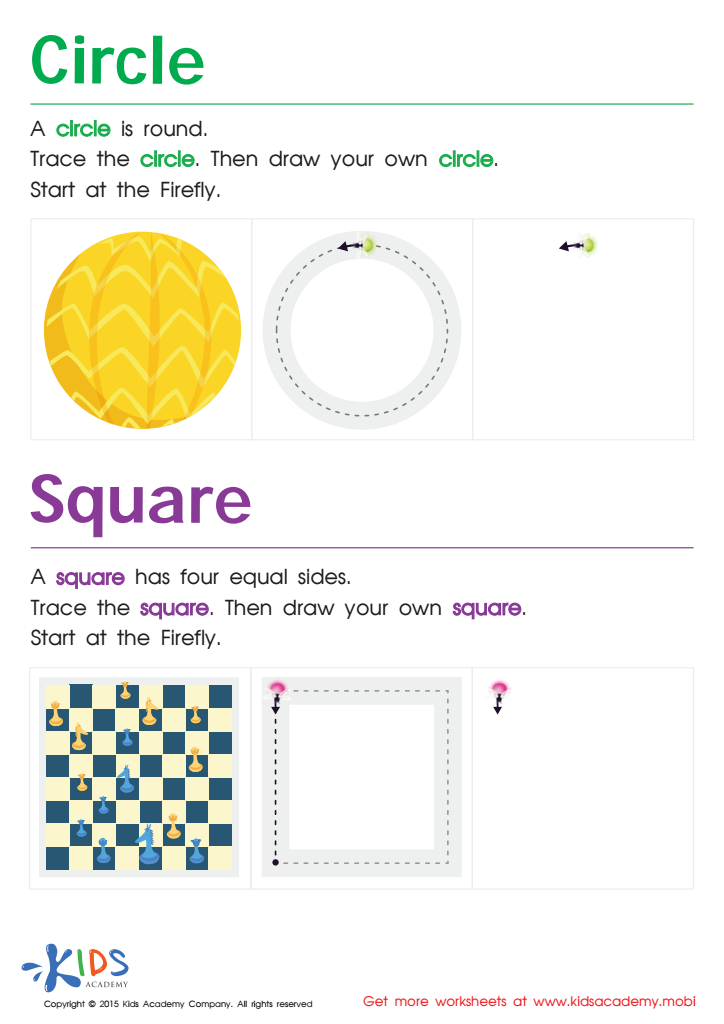

Trace And Draw a Circle And a Square Worksheet
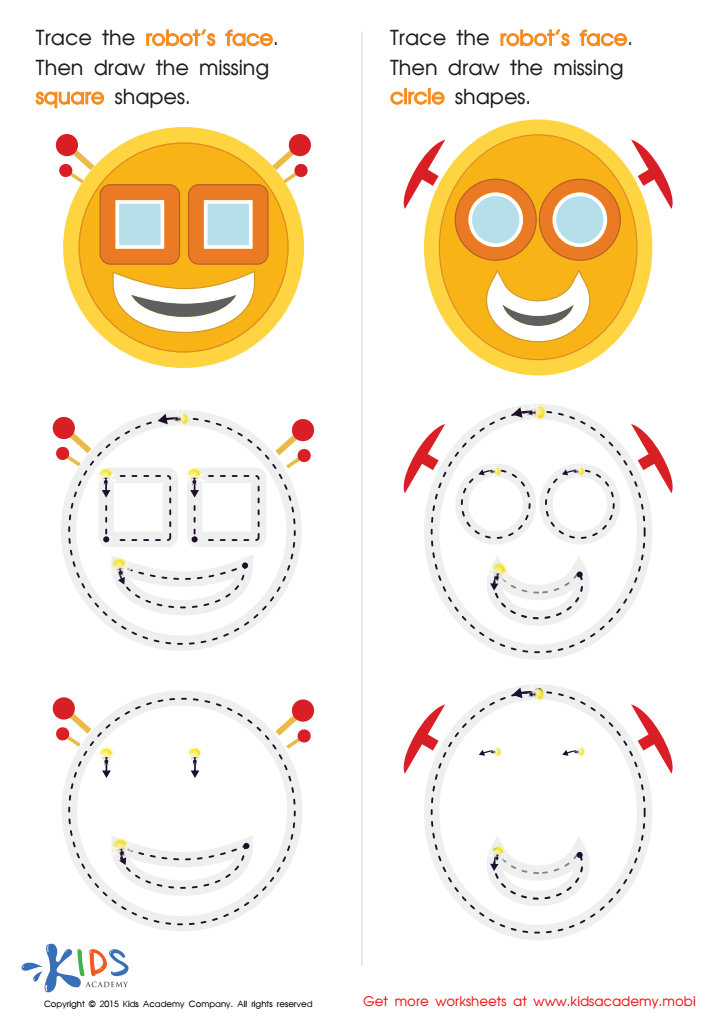

Practicing to Draw Circles And Squares Printable
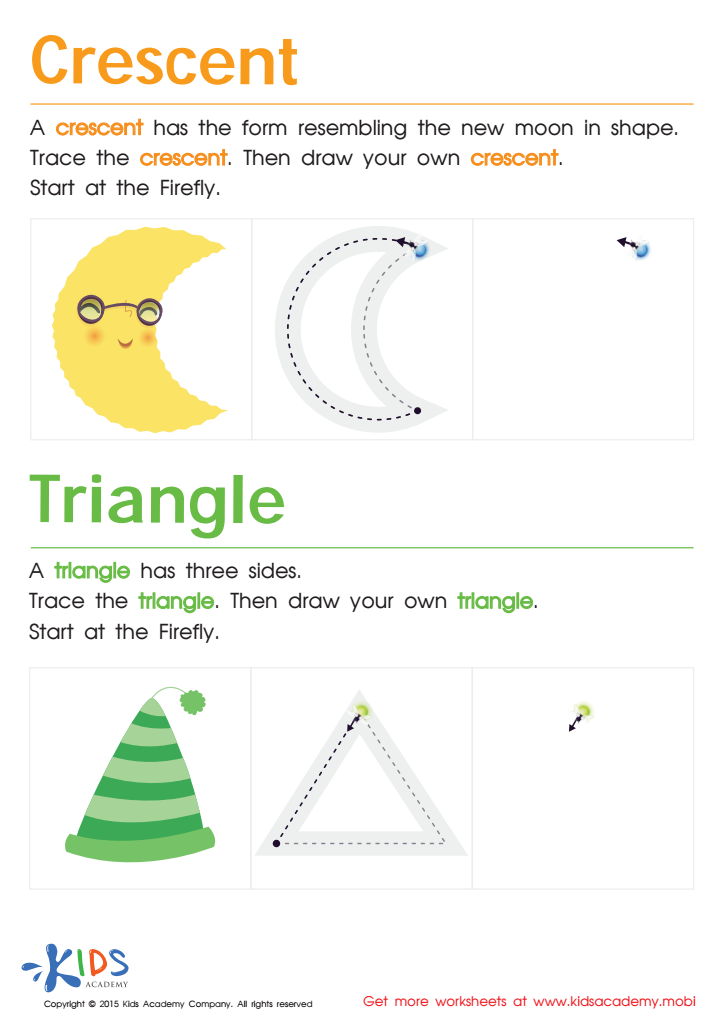

Learning to Draw Crescents And Triangles Worksheet
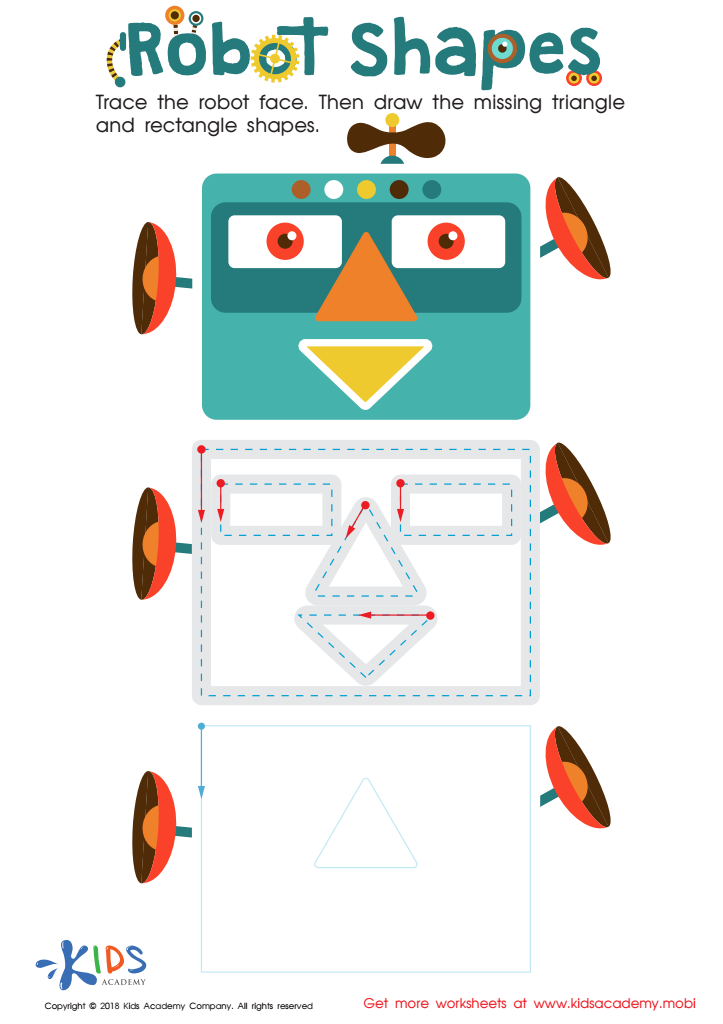

Robot Shapes Worksheet
Shape recognition and normal tracing of shapes is crucial for children's early development, particularly for ages 3 to 7. Understanding shapes helps children make sense of their environment, recognize patterns, and develop spatial awareness. These foundational skills are vital for later mathematics and science learning, as they form the building blocks for geometry and problem-solving.
When children trace shapes, they enhance their fine motor skills, which are essential for writing and drawing. This activity not only improves hand-eye coordination but also fosters dexterity, enabling children to perform everyday tasks with greater ease. Moreover, shape activities encourage cognitive development by promoting critical thinking, creativity, and concentration.
For parents and teachers, engagement in shape recognition activities serves as a platform for enhancing communication skills. Discussing shapes and their properties introduces new vocabulary and concepts, facilitating language development. These interactions nurture social skills and boost confidence as children share and explain their work.
Incorporating shape recognition and tracing in education supports overall holistic development. It combines physical, cognitive, and emotional learning, making it a priority for parents and educators who wish to foster a well-rounded, confident, and capable child ready for future academic challenges.
 Assign to My Students
Assign to My Students












